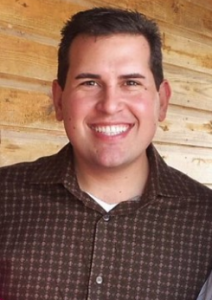MONTHLY SPOTLIGHT – LUCIEN R. COSTLEY
Lucien R. Costley, one of the founding members of HEGSA, recently defended his dissertation, “Evaluating Colleges and Universities: A New Model for Institutional Rankings” and, on May 16, will graduate from the program with a Ph.D. in Higher Education Management, Leadership, and Policy. Currently, as the Director of Institutional Research and Analysis at Schreiner University (Schreiner, Texas), he has utilized his statistical- and higher education-based skills as a key administrator for institutional data and reporting. Although his schedule is filled with completing his degree and serving as a part of a higher education administration, he sat down with the HEGSA stewards to speak about the field and his professional life.
What is a typical day like in your role? If you had to choose, what are the three most rewarding aspects of your role?
“Every day is a busy day at Schreiner University. I primarily focus on reporting statistical data to numerous agencies (federal and state government) which can take up a large majority of my time as well as developing new analytical reports for university cabinet members to use as references for ongoing decision making. Aside from my daily tasks and deliverables, I work in the President’s building on campus, so the traffic of university administrators, board members and guests are at a constant flow. I have the opportunity to see and meet so many new faces on a daily basis. Three most rewarding aspects of my job include the positive feedback received from university officials when an IR report is published, the comradery established with so many talented university employees and the freedom to develop newness (analytical output measures, data capture processes, training modules for staff).”
Why does this type of work interest you? What aspects of higher education most interest you?
“I never knew that I would truly enjoy the work in IR until I served as a graduate assistant for Dr. Rong Chen, Director of Higher Education Graduate Programs. I was able to delve into data research, mining and output while assisting with the program self-study, enrollment projections, and comparative program analysis. Now, I focus on these areas and so much more. I am truly interested in (similar to my dissertation work) working with institution level data. Whether my focus is about institutional ranking, finding correlations among variables, or demonstrating success with output measures, I enjoy reviewing a more abstract view of higher education (the 50,000 foot view).”
What types of jobs and experiences led to your present role? Which of these experiences was the most influential?
“Before seeking my Ph.D. in higher education, I worked for the state K-12 system in Texas. One of my responsibilities was to address audit and compliance guidelines for multi-million dollar federal and state programs and develop reporting for internal and external stakeholders. I use these skills on a daily basis with my present role at Schreiner. Transitioning from K-12 into higher education was a challenge, but these transferable skills helped my adjustment seamlessly. I truly enjoy working in an interactive environment where the rapport among colleagues remains positive, is filled with laughter and ease, and all are genuinely invested in making the company (university in this case) a better place. With this combination, great outcomes will result!”
If you had to offer advice to someone starting one of the HRED programs, what would you share?
“My best advice for all students is to focus on narrowing a dissertation topic by the end of the first academic year. In doing so, all work within every academic course can lead towards researching that topic so that when comprehensive examinations are due; a large majority of the research is complete. At first, it may seem overwhelming to determine a topic, much less research questions to investigate so early on in the program. However, if you work with your advisor on brainstorming topics, attend an ASHE, AIR, or AERA conference, or read various higher education blogs, the topic will naturally develop. Promise.”

